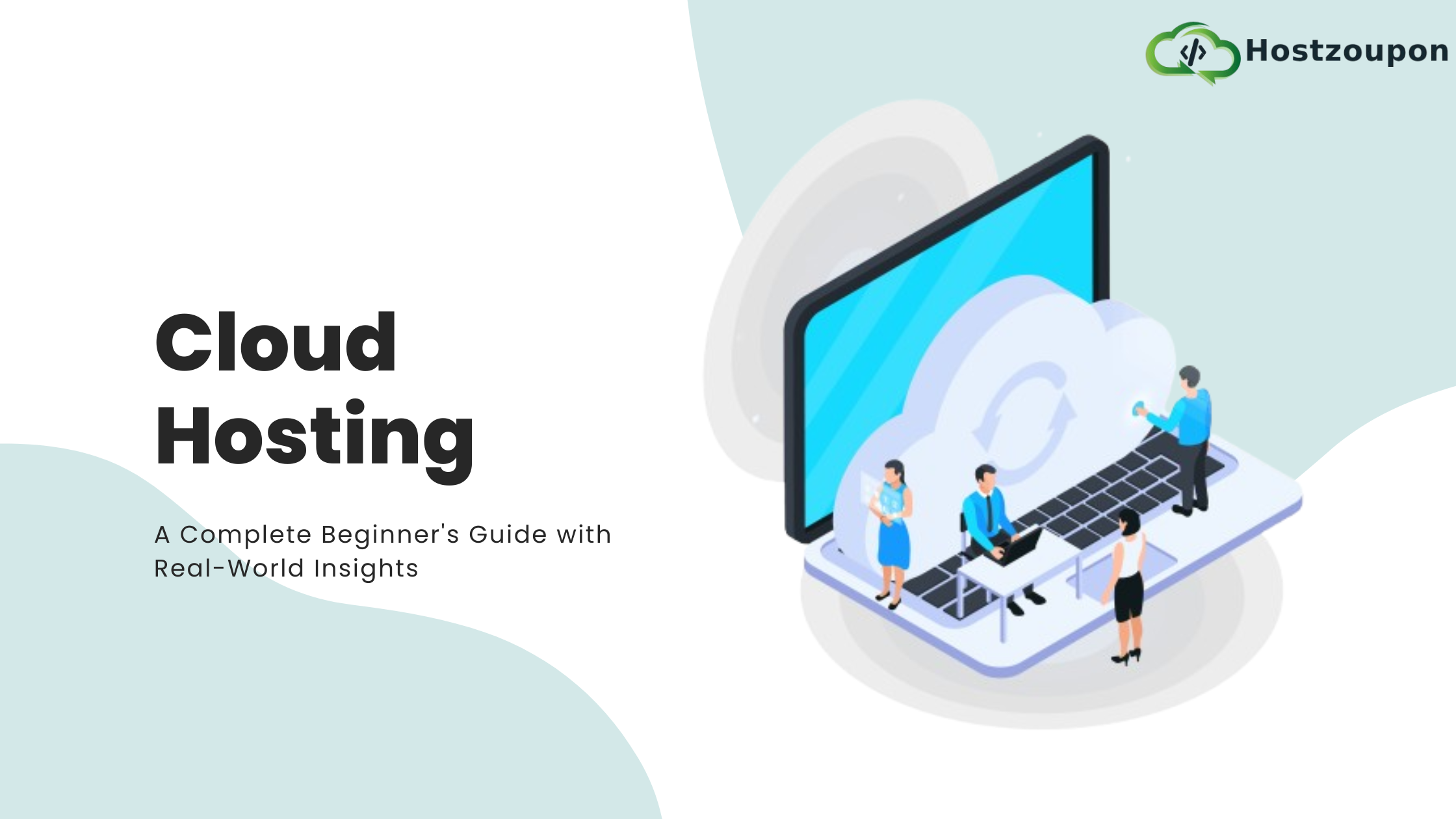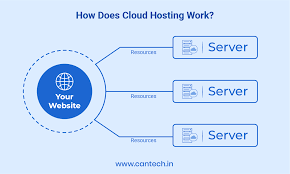What is Cloud Hosting?
A Complete Beginner’s Guide with Real-World Insights
Introduction: Why Everyone’s Talking About Cloud Hosting
Imagine you’re opening a store. Would you prefer a fixed stall in a crowded street, or the ability to pop up anywhere, anytime, based on where your customers are? That’s the difference between traditional hosting and cloud hosting.
Cloud hosting has become the gold standard for businesses, developers, and even bloggers who want speed, flexibility, and peace of mind. But what exactly is it? How does it work? And more importantly, should you be using it?
Let’s break it down.
So, What is Cloud Hosting in Simple Terms?
Cloud hosting is a type of web hosting where your website doesn’t sit on a single server. Instead, it lives on a network of interconnected servers (the cloud). This means your website can pull resources from multiple sources as needed.
Think of it like Netflix. When you stream a movie, you’re not downloading it from one computer. It’s delivered from a network of servers that respond based on your location, internet speed, and server load. That’s cloud delivery in action.
In the same way, cloud hosting delivers your website from a system of servers that work together to ensure:
- High availability
- Speed
- Load balancing
- Minimal downtime
How Does Cloud Hosting Actually Work?
Here’s a simplified flow:
- Your website is stored across multiple cloud servers.
- When a user visits your site, the server closest to them delivers it.
- If one server is under maintenance or crashes, another takes over seamlessly.
- Resources (RAM, CPU, storage) scale up or down based on real-time demand.
This is made possible through virtualization and load balancing. Instead of relying on physical hardware, cloud hosting uses virtual servers that tap into a pool of real resources distributed across multiple data centers.
Real-World Example: During Black Friday, an ecommerce site hosted on traditional shared hosting might crash due to a traffic spike. But a cloud-hosted site simply scales its resources on the fly to handle the demand.
Key Features of Cloud Hosting (And Why They Matter)
- Scalability on Demand
You don’t pay for what you don’t use. If your traffic spikes overnight, your hosting environment expands instantly. Once things settle, so does your bill. - High Availability
With data mirrored across multiple servers, your site stays live even if one or more servers go offline. - Fast Loading Speeds
Cloud servers use CDNs and edge locations to ensure users get served from the closest server geographically. - Automatic Backups & Recovery
Many cloud providers offer built-in daily backups, versioning, and disaster recovery tools. - Custom Resource Allocation
You get to define how much RAM, storage, and processing power you need. This is great for developers and growing businesses. - Improved Security Layers
Firewalls, DDoS protection, and isolation of resources make cloud environments safer than shared alternatives.
Who Should Use Cloud Hosting?
Cloud hosting isn’t just for tech giants. It’s for you if you:
- Run an ecommerce store with seasonal traffic
- Operate a high-traffic blog or news site
- Manage a SaaS application or mobile backend
- Work on client websites and need flexibility
- Run a global business and care about fast load times worldwide
Case Study: A food delivery app in India scaled from 500 to 50,000 users during the pandemic. They were able to do this without downtime or lag thanks to cloud hosting from a provider with Indian data centers.
What to Look for in a Cloud Hosting Provider
- Global Server Presence: Choose a provider with data centers near your audience.
- Transparent Pricing: Pay-as-you-go or fixed plans? Know what works for your budget.
- Managed vs Unmanaged: Beginners should go for managed services where the provider handles setup, updates, and security.
- Support & SLAs: Look for 24/7 support and a service-level agreement that guarantees uptime.
- Compatibility: Ensure it supports your stack — WordPress, Node.js, PHP, etc.
Common Myths About Cloud Hosting
Myth 1: It’s only for large businesses
Truth: Startups and freelancers benefit the most due to flexibility and cost control.
Myth 2: It’s too technical
Truth: Managed cloud hosting providers make it no harder than using WordPress.
Myth 3: It’s expensive
Truth: In fact, you often pay less because you only pay for what you use.
Final Thoughts: Should You Switch to Cloud Hosting?
If you value uptime, speed, and flexibility, cloud hosting is a no-brainer. Especially in a world where digital experience defines success, being able to scale without downtime or stress is priceless.
Whether you’re building a personal blog, launching a SaaS product, or running a growing business, cloud hosting gives you the power and resilience to grow fearlessly.
So yes, the cloud is worth the hype. And no, you don’t need to be a tech wizard to use it.
Bonus Tip: Start Small
Most providers (like Hostinger, A2 Hosting, DigitalOcean, etc.) offer entry-level cloud plans. Try them out. Test speed. Evaluate support. Then scale as you grow.
You don’t have to jump all in—just start.
Would you like a list of the best cloud hosting providers for 2025 next?








